SUMMARY
This is AI generated summarization, which may have errors. For context, always refer to the full article.
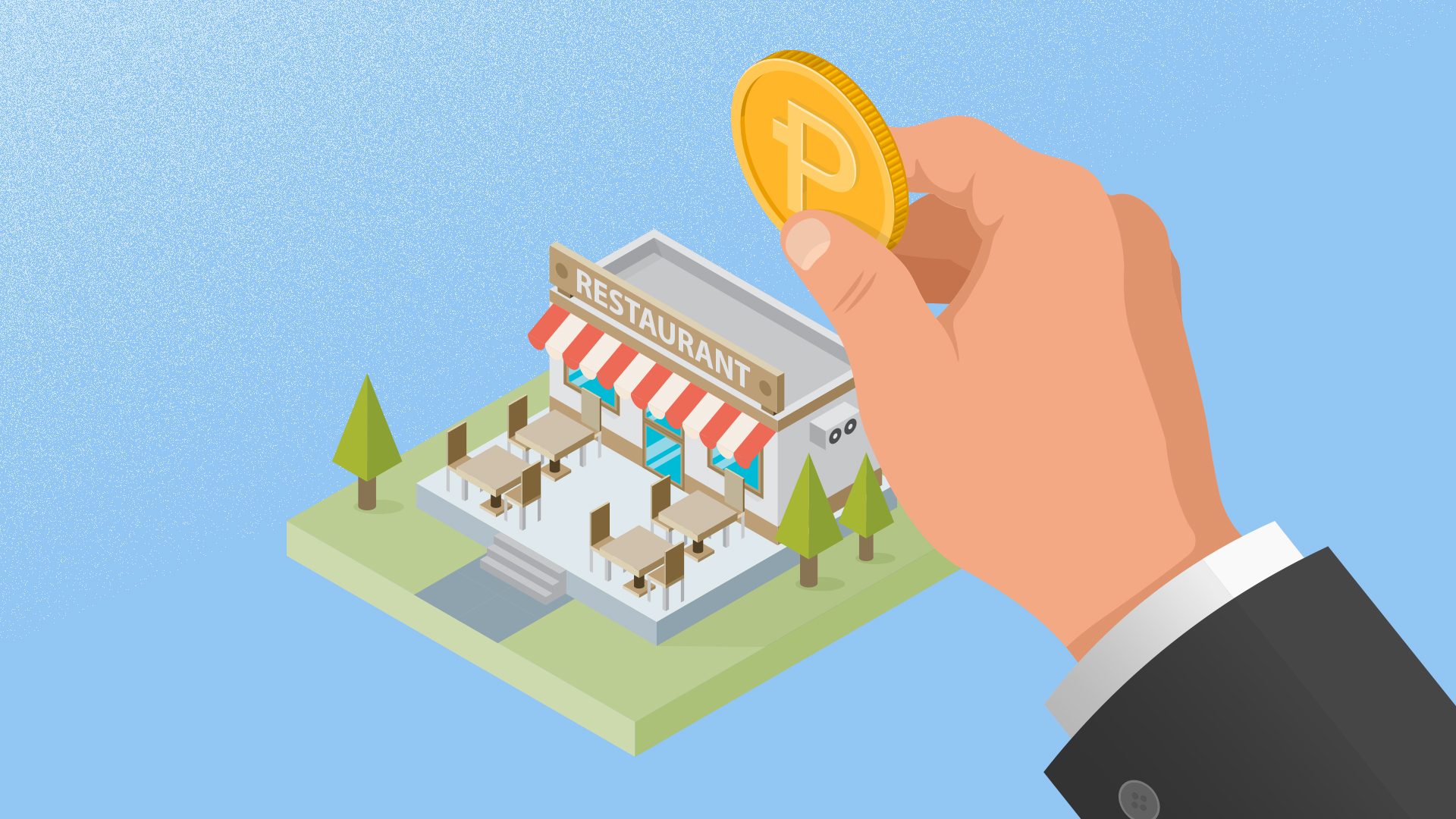
After over a year and a half in lockdown, the food and beverage industry has seen it all – sudden closures, loss of staff, permanently shuttered windows, to re-openings, an increase in deliveries, new products, and even expansions.
While some small businesses managed to pull through, some weren’t so lucky. Nobody anticipated the lockdown to stretch on this long, and hardly anybody was prepared for added troubles: restrictions that changed rapidly, an uncertain economy, rises in COVID-19 cases, and a lack of government assistance.
We’re halfway through 2021, and less than a year away from the next presidential elections in June 2022. With the possibility of a new administration approaching, small businesses want to know: What’s next?
Innovative “pivots” and private sector support aside, another year in lockdown might just be the tipping point for many small businesses.

Dishing the hard truths
For chef Ed Bugia, it’s been over a year of celebrating wins and grieving losses. Bugia’s restaurants, Mimi & Bros and Bean and Yolk, are still relatively okay, being located in busy districts such as Bonifacio Global City and Westgate Alabang, respectively. However, restaurants located in less dense areas suffered – Bugia had to let go of his Pino, Pipino, and Pi Breakfast and Pies branches in Poblacion and Teachers Village after 13 years.
He sold it to a former investor in hopes of making a buck, but Bugia said so much debt to pay that not a single peso was earned from the sale.
“The debt was mounted from having independent restaurants in places like BF Homes, Kapitolyo, Maginhawa, and Poblacion. But I also understand our landlords are also independent and they’re also SMEs, so they cannot support us as much. Sila rin eh, they need it as means of livelihood also,” Bugia told Rappler.
The survival of a business also depends on the nature of products sold, Jutes Templo, owner of pizza place Gino’s, Tyler’s Cafe, Cello’s Doughnuts, and Mitchell’s Backyard Brewery, acknowledges. According to Jutes, brunch spot Tyler’s Cafe would not be alive if not for neighbor Gino’s – but even that isn’t doing as good as before. But Gino’s, because of the delivery-friendly nature of pizza helped subsidize his other businesses.
On the other hand, the liquor ban has affected Templo’s homemade beer brand Mitchell’s. “Buti na lang maliit lang ‘yung space, maliit lang ‘yung production namin, parang buhay pa naman kami,” Templo told Rappler. (It’s a good thing our space is small, and so is our production. It seems like we’re still alive).
Food kiosks dependent on food festivals and outdoor markets have also suffered, just like Cebu City’s Banana Pancake Trail.
Both their locations in Sugbo Mercado and Grid Talamban closed in March 2020 and only reopened in August and June, respectively, for deliveries only. Both branches re-opened at a limited dine-in capacity in September, but this wasn’t enough for the Grid Talamban branch, which closed permanently the next month. To Banana Pancake Trail, the changing restrictions and curfews were limiting – and even crippling.
“A chunk of our sales used to come from late night diners. The curfew greatly affected that. The limitations on seniors and children also meant that we had to say no to many dine-in customers since they brought children or elderly people with them,” they told Rappler.
Even the lack of public transportation meant the company had to shoulder the transportation service of all of their staff every day. Luckily, Banana Pancake Trail still managed to open their first brick-and-mortar store in Escario in November 2020 – because they “had to keep going.”
“We had employees who relied on their jobs for their families. If we gave up, a dozen families would have lost their livelihood,” they said.
Sales: Slow, not yet steady
In mid-2020, Bugia’s sales were only at 30% of their usual pre-pandemic stats – barely enough to cover his staff and leaving nothing for him to earn. Things started picking up late 2020 during the general community quarantine (GCQ), but when a surge in COVID-19 cases was recorded in early 2021, sales went back to barely 20% of what they used to make before. Businesses are still fragile, and income is largely unsteady.
“But now that the economy is opening up again, at least it’s bounced back a little bit; around the 60-70% of pre-COVID sales. At least finally umabot na ng seven digits yung sales namin, kasi before it was really just a struggle to get to that seven-digit mark,” Bugia said, adding that achieving one million in sales was already something to celebrate.
Banana Pancake Trail’s overall sales are still “50% at best,” compared to their pre-pandemic sales, which were 90% dine-in and 10% delivery orders. During the pandemic, 30% of their sales were from dine-in customers, while 70% were from deliveries.
“It’s been a year in lockdown and it still has not stabilized. The sales aren’t back to pre-COVID, definitely. When I say we earn ‘a little bit,’ ‘yung enough to survive. Enough to pay our people properly,” Bugia said.
However, amid the struggles, help came through, too. For Bugia and Templo, much-needed support came from the private-owned malls.
“The mall-based ones were able to give us rent considerations. Our Bean and Yolk branch in Westgate is under Filinvest, which is well-developed. The landlords gave concessions. So as long as your landlords can give concessions, kaya namang magsurvive eh,” Bugia said.
Templo also said that most malls offered rent subsidies, which really helped lower down his costs for Gino’s Shangri-La and Serendra branches.
Small in scale, but big in risk
Compared to the bigger conglomerates and restaurant chains, small, independent businesses are undoubtedly at higher risk for losses and failures. Often, these businesses don’t have a large war chest of savings to depend on, especially in times like these.
“We don’t have enough savings to last this long. Usually the rule of thumb is magtira ka for two-three months of operation expenses in the bank. But what if even pre-pandemic savings were just enough to pay for one month, maybe two?” Bugia said.
Templo agreed, saying that most small businesses haven’t accumulated any savings yet, because most owners can only afford to live month to month. “When you’re at that stage, micro or small, the mere fact na wala ka pang pang-open ng isa pang branch, that means wala ka pang savings,” Templo said.
According to Bugia, even small restaurants that are “already established” suffer on the daily – just the operating expenses and overhead costs of a branch open for take-out alone is so much, that “something as simple as paying your people” can keep worried owners up at night.
“Some people say ‘just rotate them in and out.’ That’s the businessman aspect. But where’s the humanitarian aspect? How can you look your staff in the eye and tell them, ‘Three times a week ka na lang papasok?” Bugia added. Because restaurant staff are paid by the day, Bugia asks: How can owners balance trying to keep their costs down, while making sure their staff aren’t denied a proper living wage?
“SMEs, in general, have very little to no backup funds. We also receive the least assistance to none from the government,” the Banana Pancake Trail owner added.
Restaurant staff are also considered frontliners in the pandemic – every day they report to work, exposing themselves to customers, riders, and the threat of the virus. The risk is greater if physical stores do not provide enough ventilation and if customers refuse to practice the appropriate safety protocols. It’s why Templo has not opened any of his restaurants for dine-in since March 2020.
“I really believe that safety is important. Number one priority of everything is safety. So pro-mask, pro-shield person ako. In fact, hindi kami nag-oopen ng dine-in kahit pwede na,” he said.
“The logistics I just find it too complicated, because we have to deal with customers who don’t want to be as safe as other customers.”
Spending on their staff’s health and safety adds to the expenses – this includes disinfectants and face masks, which are used and disposed every day.
Government assistance (or lack thereof)
Bugia said the Bayanihan: We Heal As One Act, which added a 30-day grace period for loan payments, was exciting at first, but hardly understood. Some restaurant owners who thought that rent would be subsidized for the first few months ended up having to pay triple their rent in one month.
“We’ve been hearing news that a branch of government is about to release up to two million pesos of a loan, with two years to pay and no interest. That’s good! It’s still a loan,” Bugia said.
To Bugia, however, it wasn’t a message of “we’ll give you help by infusing money into the sector.” At the end of the day, it’s not a stimulus fund.
“Walang sumasalo sa amin (Nobody will catch us when we fall),” Bugia said, comparing it to his holdings in Singapore.
According to him, the Singapore government pays for their rent, and even 70% of displaced workers’ salaries whenever a lockdown is enforced. “Ang sarap eh. Here, there’s nothing. Wala naman kaming inaasahan sa government,” he added. (It’s a little easier. Here, there’s nothing. We don’t even expect anything from the government anymore).
Banana Pancake Trail admits the lack of assistance from their Local Government Unit (LGU). “Even basic garbage collection is hit and miss,” they said. “Our company had zero help from any government entity.”
Even quarantine changes and restrictions are relayed by the landlords, instead of directly from the IATF, Bugia said. He has to be on standby for new announcements every day from news outlets and media websites.
What they need
It may be hard to see the light at the end of this seemingly never-ending tunnel, but Templo believes that hope for the F&B industry lies in speeding up our country’s vaccination program and increasing vaccination trust among the public.
“Making people want to get vaccinated would really make the light at the end of the tunnel closer. Once more supplies are here, sana by the end of the year, ma-distribute na kaagad (hopefully by the end of the year, it’s distributed) as fast as possible,” he added.
Bugia also lauded the government for the roll-out; because more people are getting vaccinated, customers are becoming more confident to dine out – a reason why Bugia’s sales have been improving recently.
Templo also said that subsidies from the government would greatly help small businesses. Loans are fine, but loans still take years to pay off – a privilege that not all businesses can afford.
“Don’t give us loans. We need stimulus. Give us real support and maybe proper coordination. Will the government help us jumpstart by giving us stimulus from those billions na pinag-usapan nila?” Bugia said.
“There has to be a long-term solution on how we are going to get out of this. Hindi yung puro humiram lang ng pera. Baon na tayo sa utang (Not just loans. We’re already drowning in debt) as a country, so where is it going?” he added, asking for more transparency on how borrowed funds are spent on.
Better communication between the F&B industry and the tourism industry is something Bugia would also like to see, as he believes that food and drink are key factors in reviving local tourism. Proper implementation of IATF’s rules for restaurants are crucial in lessening the chaos too, said Bugia.
Vaccination initiatives like the Bakuna Benefits Program was also an effort offered by the private sector, spearheaded by SMART, Globe, McDonald’s, Jollibee, and other corporations. Bugia wishes that the government would think of similar programs to help them out – or at the very least, reimburse them for the discounts they offer to fully-vaccinated customers. Even a government-funded soup kitchen would be ideal; at the same time, he cautions that even these programs can end up being politicized and weaponized.
“Sariling sikap lahat yan,” said Bugia. “It’s always band-aid solutions. We need a government that has foresight.”
What about making restaurants “pandemic-resilient?” This is Bugia’s goal for his restaurants, investing funds to make all his stores completely al fresco – investing in outdoor tables and purchasing umbrellas. Bugia hopes that this could be a type of stimulus package the government could offer businesses; it’s something small but impactful in the long run.
The private sector has offered their support when needed – community pantries, for example, helped feed hungry Filipinos for free during the pandemic. But Templo knows that they cannot always expect help from the private sector.
“They themselves are struggling to survive. And it’s not their role, it’s really the role of the government,” he said.
Moving forward, little by little
“We’re forced to celebrate small wins, of course, pero the reality is far from normal. It will only become normal once everyone is vaccinated,” Templo said, reiterating that more energy should be spent towards vaccination roll-outs than the implementation of curfews.
Bugia also said that businesses who shifted online have seen minor improvements, but the progress is not always sustainable, because “people don’t understand the costs behind it.”
“There are bigger sales but also bigger ad expense because you want to be top of mind there. Ang dami mong kaagaw diyan in the space. You also have to pay for the deliveries to aggregators na sobrang laki ng kinukuha,” he said.
“The reality is all the restrictions placed by the government as well as the shift in the mentality of the general crowd adversely affected our sales. People would rather stay home and cook now,” the Banana Pancake Trail owner said.
Businesses, said Bugia, need foresight from those in power.
“What happens when the economy opens up? It’s just a lot of uncertainty. Will people have that confidence to go out even if they’ve been fully vaccinated? If we have a lot of vaccinated people, why am I still at the 60-70% mark of pre-COVID sales? When will herd immunity be actually fesasible?” Bugia asked.
It’s a delicate act to balance – finding new ways to provide for your business and staff, while also prioritizing everyone’s safety and health. External help, to many feels like a right – but small businesses know that more often than not, it’s a privilege.
Making business decisions shouldn’t feel like a choice between life or death, but right now, for many, it is.
“For my friends in the industry, we just have to check up on them mentally and physically. No one is going through an easy time, even if you own a restaurant chain,” Bugia said.
“It’s taking their all of their blood, sweat, and tears, just to make sure that their brands are still standing and I’m willing to bet you no one is earning a single cent right now. Just enough to survive. And that’s actually how low the bar is right now. ‘Yung just enough to survive.” – Rappler.com
Add a comment
How does this make you feel?


![[Time Trowel] Evolution and the sneakiness of COVID](https://www.rappler.com/tachyon/2024/02/tl-evolution-covid.jpg?resize=257%2C257&crop=455px%2C0px%2C1080px%2C1080px)


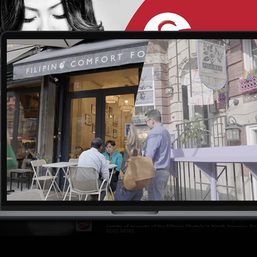
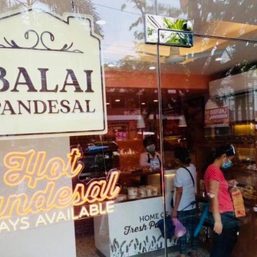
![[OPINYON] Takoyaki tattoo at ang business model ng pang-iinis](https://www.rappler.com/tachyon/2024/04/20240410-Takoyaki-tattoo.jpg?resize=257%2C257&crop_strategy=attention)


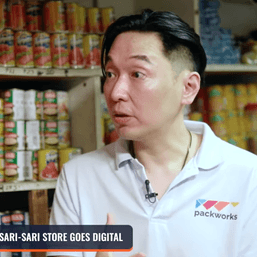

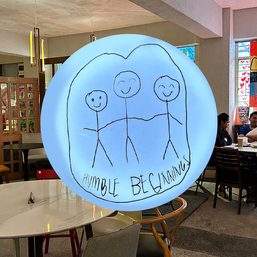
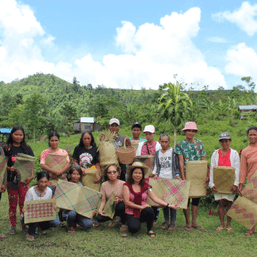

There are no comments yet. Add your comment to start the conversation.